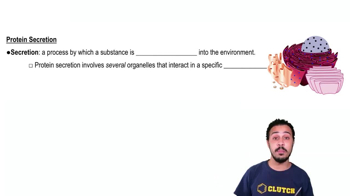Multiple Choice
Which process primarily occurs at the glomerulus within the nephron?
79
views
 Verified step by step guidance
Verified step by step guidance Verified video answer for a similar problem:
Verified video answer for a similar problem:



 1:41m
1:41mMaster Introduction to the Nephron with a bite sized video explanation from Bruce Bryan
Start learning